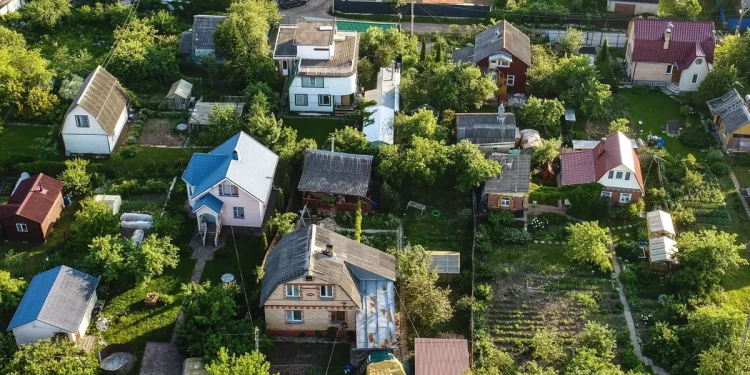The Land Code will allow legitimizing plots that were arbitrarily occupied during construction, which began before September 1. Where to go depends on where the site is occupied.
Amendments to the Land Code allow, under certain conditions, to legalize illegally occupied plots, Deputy Head of the Main Department for Regulation of Land Relations of Land Management and Land Cadastre – Head of the Department for Regulation of Land Relations of the State Committee for Property of the Republic of Belarus Viktoria Verina told the Sputnik Belarus multimedia press center.
“The issues that are being resolved are those related to unauthorized construction, that is, construction, reconstruction. Not just to come, plant beds, for example, but to legitimize what was built – some capital facilities,” Verina commented on the innovations.
Where to apply in order to legalize the site
She added that the changes provide for a different level of decision-making.
It is possible to legalize the unauthorized occupation of an entire plot, or even a part of a plot, but classified as agricultural or forest land, only with the consent of the president. In this case, you will have to apply for registration of the site to the regional or Minsk city executive committee (depending on where the site is located).
If it is necessary to formalize the rights to an unauthorized part of someone else’s plot in a settlement (and the site is not classified as a forest or agricultural fund), then the decision will be made by the local authorities on their own.
The representative of the State Property Committee explained that the decision, which will allow to legalize the occupation of a part of the site in the regional center, is taken by the regional executive committee, in the city of Minsk – by the Minsk City Executive Committee.
The decision on the registration of the site on the territory of regional centers, villages, agro-towns, cities, and other settlements of regional subordination will be made by the district executive committees, she explained.
The village executive committee will need to be contacted to draw up documents for illegally occupied parts of plots in rural settlements (except for agro-towns), Verina noted.
It became known when the amendments to the Land Code will come into force>>>
Conditions for a positive decision
“In principle, in order for a positive decision to be made and all this to be legalized, a number of conditions will need to be met,” the representative of the State Property Committee noted.
The first condition is that the fact of unauthorized construction must be recorded before the amendments to the Land Code come into force, that is, before September 1.
The land plot, the boundaries of which were partially violated during construction, or whose intended purpose was not observed, should also be provided to the “amnestied” before September 1, the deputy head of the department noted.
“Since it’s called a ‘land amnesty’, it is designed to legitimize everything that has already been built,” Verina explained.
The representative of the State Property Committee drew attention to the fact that the amnesty is not indefinite.
The right to legalize the site can be used within three years, which means that you need to come with an application to the executive committee before September 1, 2027.
Other conditions that must be met in order to legalize everything relate to buildings.
“Firstly, the preservation of buildings should not significantly violate urban planning and construction norms and rules. Roughly speaking, it should not endanger life, property, health of citizens, should not harm the environment,” the deputy head of the department explained.
She noted that if the building went beyond the boundaries of its owner’s land and seized part of someone else’s land, then, of course, the consent of the owner of the neighboring land, part of which was occupied, would be required.
Another requirement: there should be no disputes that the court considers in this area – if the issue is resolved in court, then there is no question of legalizing until the court makes a final decision, the representative of the State Property Committee drew attention.
If agricultural or forest lands are seized, then it will be necessary to pay the losses to agriculture or forestry, Verina warned.
“In addition, for the right to legalize it will be necessary to pay a fee to the local budget in the amount of the cadastral value of the land plot or part of the land plot, in case you “climbed out” of your land plot,” the deputy head of the department noted.
She said that the last condition that needs to be met is that if the main land plot is privately owned or leased and a fee was previously paid for it, then a fee will also have to be paid for the illegally occupied plot or part of the plot, or it will be bought out to a private property or rent.





